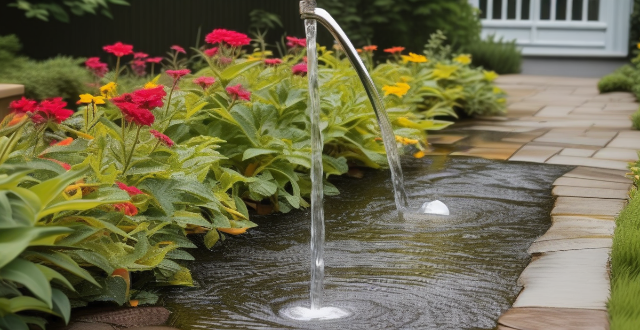Reducing water consumption at home can be achieved through various methods, including fixing leaks, installing water-saving fixtures, using efficient appliances, changing habits, being smart with gardening, and monitoring usage. By checking for drips, tightening fixtures, upgrading to low-flow toilets and showerheads, using Energy Star washers and dishwashers, turning off the tap while brushing teeth or shaving, watering the garden in the morning, and regularly reading the water meter, households can save money on utility bills and contribute to a more sustainable environment.

Tips for Reducing Water Consumption at Home
1. Fix Leaks
- Check for Drips: Regularly inspect faucets, showerheads, and pipes for any drips or leaks. A small drip can waste a significant amount of water over time.
- Tighten Fixtures: If you find any leaks, tighten the fixtures or replace the washers to stop the drip.
- Call a Professional: For more complex leaks, it's best to call a plumber to ensure proper repairs and prevent further damage.
2. Install Water-Saving Fixtures
- Low-Flow Toilets: Upgrading to low-flow toilets can save up to 60% of the water used per flush.
- Showerheads and Faucets: Install water-saving showerheads and faucets that reduce water flow without sacrificing pressure.
- Aerators: Add aerators to your faucets, which mix air with water to reduce the amount of water used while maintaining performance.
3. Use Efficient Appliances
- Energy Star Washers: Use washing machines with the Energy Star label, which use less water and energy.
- Dishwashers: Choose water-efficient dishwashers that have a high-efficiency rating.
- Refrigerators with Ice Makers: Look for refrigerators with ice makers that don't require a constant stream of water to produce ice.
4. Change Your Habits
- Turn Off the Tap: While brushing your teeth or shaving, turn off the tap when not in use.
- Full Loads: Only run laundry and dishwasher cycles when you have full loads to maximize their efficiency.
- Collect Water: Place a bucket in the shower to collect water while waiting for it to warm up, then use this water for plants or cleaning.
5. Be Smart with Gardening
- Water in the Morning: Water your garden in the morning to reduce evaporation and give plants time to absorb the water before the heat of the day.
- Use Drip Irrigation: Drip irrigation systems target water directly to the roots, reducing waste from sprinkler overspray.
- Mulch Your Beds: Applying mulch around plants helps retain moisture in the soil and suppresses weeds that compete for water.
6. Monitor Your Usage
- Read Your Meter: Check your water meter regularly to monitor your household's water usage and identify any unexpected increases that could indicate a leak.
- Set Goals: Set water conservation goals for your household and track progress towards them.
- Review Bills: Review your water bills each month to see where you can make improvements and adjust your habits accordingly.
By implementing these tips, you can significantly reduce your home's water consumption, saving money on utility bills and contributing to a more sustainable environment.